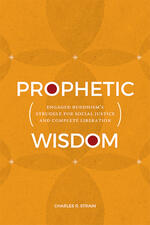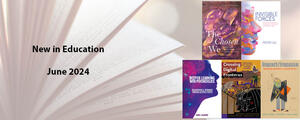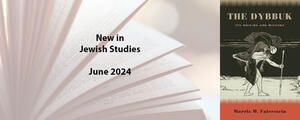
A Serial Killer Meets the Buddha
From the author of Prophetic Wisdom: Engaged Buddhists Struggle for Social Justice and Complete Liberation
By Charles R. Strain
Engaged Buddhists struggle with the concept of “structural violence,” the violence built into our institutions, laws, policies, the ways we are socialized, even into our psyches. Some Buddhists have argued that they could “borrow a prophetic voice” in order to address this violence and the social misery it produces. My new book, Prophetic Wisdom: Engaged Buddhists Struggle for Social Justice and Complete Liberation (SUNY Press, 2024) takes this challenge seriously by exploring the world and worldviews of the Hebrew prophets and then finding among Engaged Buddhists those whose views bear a “family resemblance” to those ancient prophets. Often classical stories of the Buddha need only a tweak to shift their meaning in a direction that treats this form of suffering. Here is one example.
Among the hundreds of stories of the Buddha gathered into the Pali canon the Angulimala sutta is one of the most macabre.[i] Angulimala, the serial killer, has terrorized whole villages. He appears as a superhuman incarnation of violence, armed to the teeth, adorned with a necklace made from the fingers of his victims. He has defeated possies of ten, twenty, and forty men. Spying the Buddha unarmed and walking leisurely along, Angulimala seems to have found an easy mark. But no matter how fast he runs, he cannot catch up to the Buddha. When he hollers “stop,” the Buddha replies “Angulimala, I have stopped forever. I abstain from violence toward living beings; but you have no restraint toward things that live; That is why I have stopped, and you have not” (711). Superhuman evil has met a superhuman match. A simple declaration from the Buddha leads instantly to a radical change. But things are more complicated than this homage to the Buddha’s marvelous power. The Buddha’s “You stop too” implies that Angulimala is responsible for his lack of restraint, for the violence that boils over continuously, but, as a moral being, he is capable of radical change. Although a serial killer, he is not--in the Buddha’s compassionate eyes-- a monster. Angulimala dons a monk’s robe and begins to follow the Eightfold path. The Buddha’s words may have disarmed the killer, but it is he who seizes the rare opportunity to remake his life.
Somewhat later King Pasendi arrives with 500 calvary men determined to fight violence with overwhelming violence only to discover a pacified monk. When he sees that the killer has truly reformed, he bows in respect and takes no further action. There is no hint of the need for retribution to pay back the crimes committed. Liberated from “negligence,” Angulimala “illuminates this world/Like the moon freed from a cloud” (715).
The story provides a dramatic contrast to our hankering for retribution, but it is incomplete. It does not address the harm done to Angulimala’s victims or to society. “The social fabric of the community has been rent, yet there is no effort to make things right,” argues David Loy.[ii] Instead only the offender has been dealt with but isolated from his social context. The harm that Angulimala inflicted has not been addressed. The King’s posse was a response to a mob of villagers, driven by fear, who stormed King Pasendi’s palace and demanded action. Somewhat later, their fear and anger has turned to violence when they pelt Angulimala with mud and rocks and pottery shards as he goes on his begging rounds (715). So, the Buddha tells a bleeding Angulimala to bear his pain as a consequence of his previous actions. This advice does not address the villagers’ fears, nor does it stop the spiral of violence. What scholars and activists call “restorative justice” is needed.[iii]
Imagine an alternative ending to the sutta: King Pasendi, anxious to put a stop to the spiral of violence, calls for a peacebuilding circle. Angulimala comes supported by a few monks –his new family--who can testify to his sincerity and who will pledge their support of him in fulfilling all obligations that he will incur as part of the restoration of the fractured community. Families of the victims join the circle. King Pasendi sends his representatives. Then the Buddha, whose wisdom is respected by all, is asked to moderate the process. The villagers bring their unassuaged fears and broken lives. They speak of the loss of a sense of security, the loss of livelihood and of their grief. Without equivocation, Angulimala accepts responsibility for the consequences of his actions. “Because I have taken lives,” he says, “I pledge to spend the rest of my life serving the needs of the survivors.” The King pledges to support the bereaved families with material resources. The villagers are comforted by Angulimala’s sincerity. The Buddha, speaking for the group, concludes the peacebuilding process by declaring that hoeing the fields of the villagers will now be Angulimala’s daily mindfulness practice.
Charles R. Strain is Professor Emeritus of Religious Studies at DePaul University. His previous books include Global Migration: What's Happening, Why, and a Just Response (coauthored with Elizabeth W. Collier) and The Prophet and the Bodhisattva: Daniel Berrigan, Thich Nhat Hanh, and the Ethics of Peace and Justice, which won the Society for Buddhist Christian Studies Frederick J. Streng Book of the Year Award in 2014.
[i] In Angulimala Sutta in The Middle Length Discourses of the Buddha, Second Edition, trans Nanomoli, Bhikku and Bodhi, Bhikku (Boston: Wisdom Publications, 2001), 710-717.
[ii] David Loy, “Healing Justice: a Buddhist Perspective,” in The Spiritual Roots of Restorative Justice. Edited by Michael L. Hadley (Albany, NY: SUNY Press, 2012), 82-84.
[iii] For an introduction to restorative justice, see Howard Zehr The Little Book of Restorative Justice. Revised Edition (New York: Good Books, 2015); Danielle Sered, Until We Reckon: Violence, Mass Incarceration and a Road to Repair (New York: The New Press, 2019).


